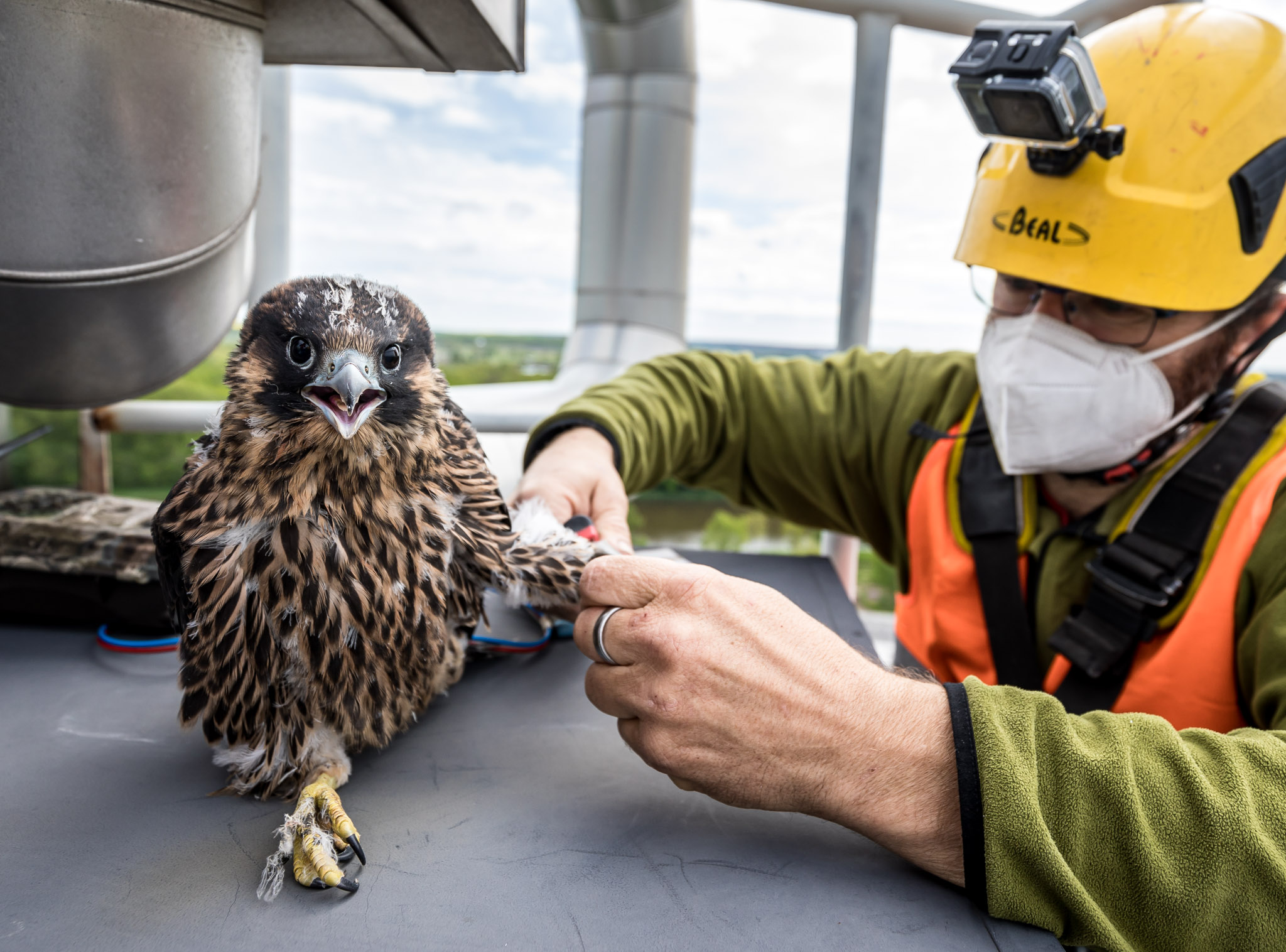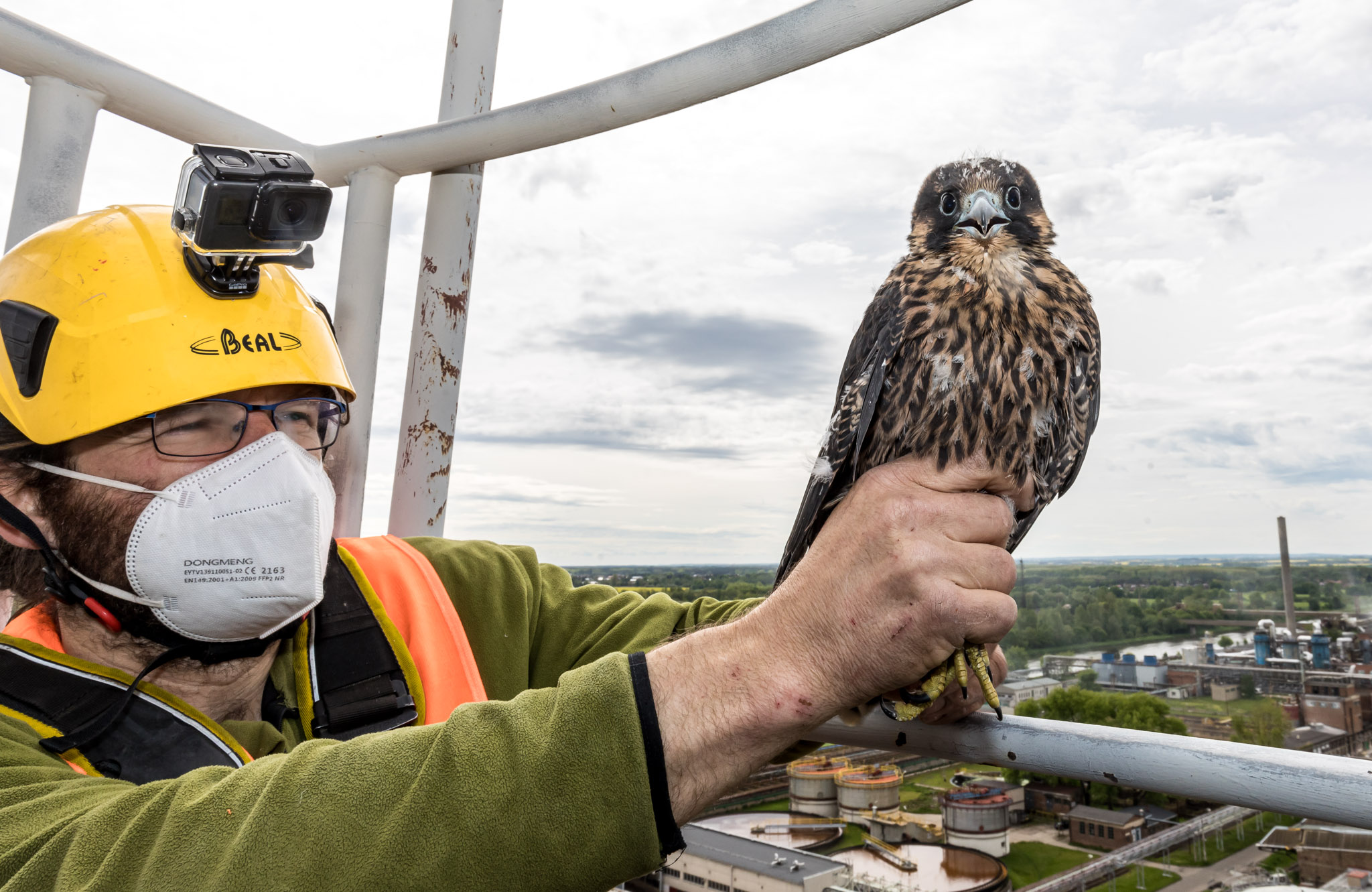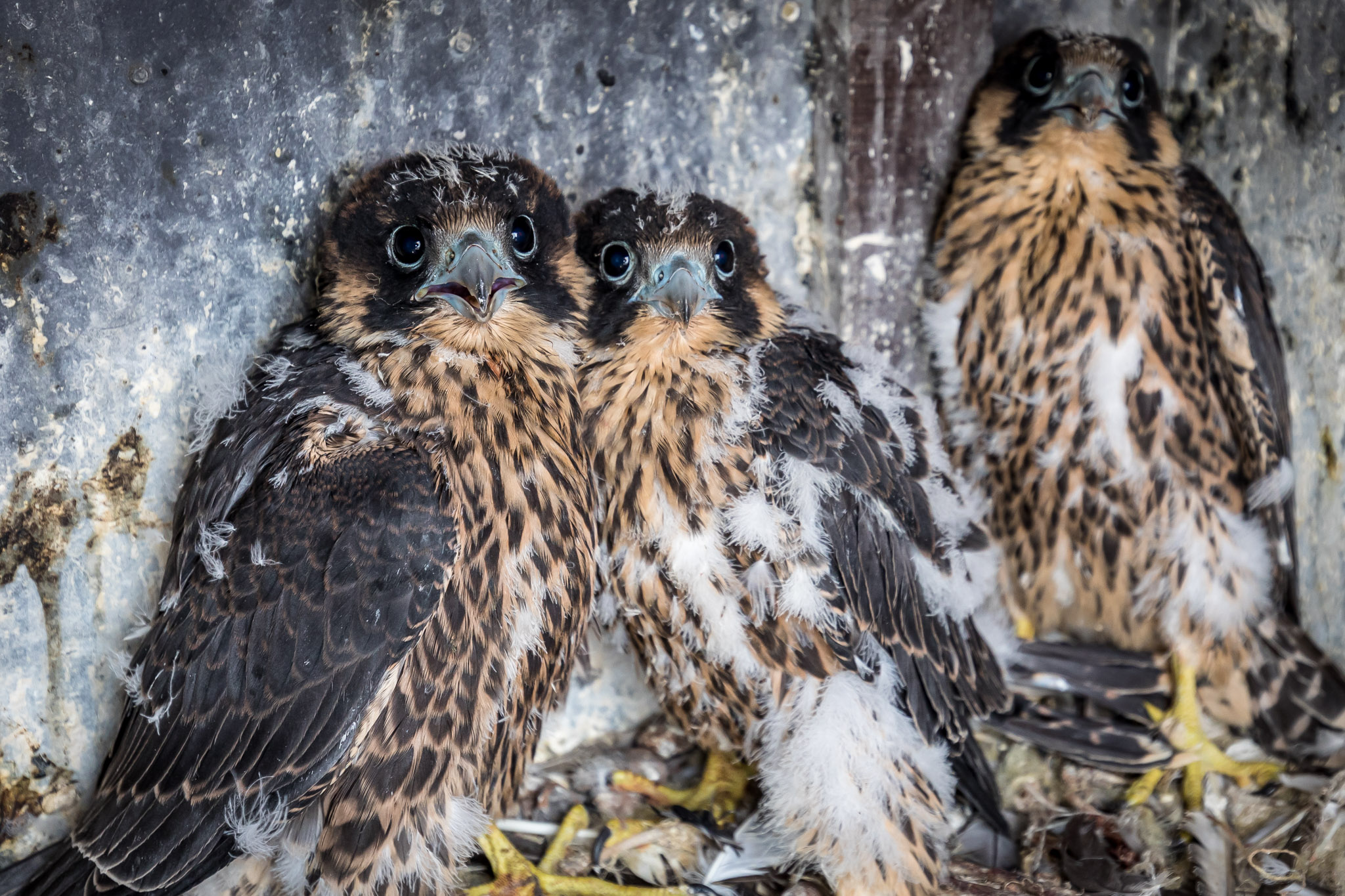The peregrine falcon is one of the
few species that became almost extinct in our country in the past century yet
managed its successful comeback. About 110 pairs currently live in the Czech
Republic. This number has recently started growing, also thanks to the strict
protection. “The peregrines do not build nests on their own. Therefore, we
started placing nest boxes on the chimneys in our industrial sites about ten
years ago to enable them to raise their young safely. In nature, these birds of
prey often get disturbed by tourists and other natural enemies,” explains Katarzyna Woś, Vice-Chair of the Board of
Directors of the ORLEN Unipetrol Group. Those interested can watch the peregrine nesting online on starameseosokoly.cz, she adds.
After a one-year break, the
refinery in Kralupy nad Vltavou can boast a new arrival. “Although the mom
laid three eggs in March, we saw only two chicks in the box in the end – one
female and one male. They were in excellent condition. Each of them received
two rings – an ornithological ring and a ring that can be read from a distance
by binoculars or on a photo trap,” says ornithologist Václav Beran of ALKA Wildlife.
A pair of the critically
endangered peregrine falcon raised their young in Spolana Neratovice a month
ago, too. The peregrines nested in the second part of the site for the first
time, beyond the web camera’s finder. They muscled out the original tenants, the
kestrels. Therefore, it was initially impossible to see how many young had
hatched. “Before we started climbing up the tower, we saw the female flying
in with a caught pigeon. In the end, she settled on the opposite cooling tower,
watching us very closely. In the meantime, we found three peregrine teenagers
in the box, whom we ringed amid loud squawking. They were almost feathered but nice, so the ringing was successful as
planned,” Václav Beran concludes optimistically.
The peregrines start reproduction
fairly early. The mating call lasts from February, and the female settles on
eggs in March. It sits on them for 30-32 days. Once the chicks hatch, they do
not stay in the nest for long. They can leave it after a month, flying around
in the surroundings. Ornithologists ring the chicks ideally when they are 15–25 days
old. If they were younger, it would be impossible to ring them. Older birds can
fight back and be aggressive. The ringing team would then risk their injury or fall
from the box.
The ORLEN Unipetrol Group is the
largest refinery and petrochemical company in the Czech Republic. It focuses on
crude oil processing and on the production, distribution and sale of vehicle
fuels and petrochemical products – particularly plastics and fertilisers. In
all these areas, it belongs among the critical players on the Czech and Central
European market. The ORLEN Unipetrol Group encompasses refineries and
production plants in Litvínov and Kralupy nad Vltavou, Paramo with its Mogul
brand in Pardubice and Kolín, Spolana Neratovice, and two research centres in
Litvínov and Brno. Unipetrol also includes a network of Benzina ORLEN filling
stations in the Czech Republic and Slovakia. With 420 filling stations, Benzina
ORLEN is the largest chain in the Czech Republic. Since its entry in 2019 to
Slovakia, Benzina ORLEN has been one of the fastest-growing chains and
currently has 20 stations in its network. ORLEN Unipetrol employs more than
4,800 people. In 2005, ORLEN Unipetrol became a member of the ORLEN Group, the
largest crude-oil processor in Central Europe. In addition to its business
development, ORLEN Unipetrol is proud to be a socially responsible corporation.
Therefore, it pays an equal amount of attention to initiatives, focusing on the
cultivation and support of sustainable development, education, local
communities, and the environment.
Contact: Pavel Kaidl, spokesman,
telephone: +420 736 502 520, e-mail: pavel.kaidl@unipetrol.cz


